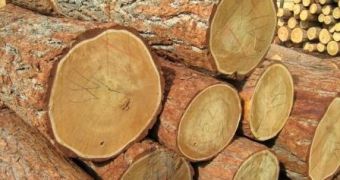The London-based Environmental Investigation Agency has recently released a new report stating that, when it comes to marketing and using illegal timber, China might as well be crowned as the absolute “monarch” of this industry.
Thus, the “Appetite for Destruction: China's Trade in Illegal Timber” report shows that, for the time being at least, China is responsible for importing massive amounts of stolen wood.
More often than not, its providers are organized criminal syndicates, the Environmental Investigation Agency explains.
Interestingly enough, the Chinese government is very much concerned with protecting the country's forests, and has made considerable progress in terms of keeping them safe.
However, as this report shows, this hardly benefits anyone as long illegal logging is being carried out in other parts of the world with the sole purpose of meeting this country's timber and wood demands.
The head of the Environmental Investigation Agency's Forests Campaign, Faith Dohery, made a case of how, “China is now effectively exporting deforestation around the world.”
Because of this, “Any further meaningful progress to safeguard the forests of the world is being undermined unless the Chinese Government acts swiftly and decisively to significantly strengthen its enforcement and ensure that illegal timber is barred from its markets.”
According to this report, the year 2011 witnessed China's importing roughly 18.5 million cubic meters of logs and sawn timber which were illegally harvested and which were worth a total of $3.7 billion ($2.85 billion).
These figures make China the world's biggest importer, exporter, and consumer of illegal timber, specialists explain. The main drive behind the country's more or less sudden interest in timber and wood is its economic growth and development.
“The vast construction effort in China, coupled with increasing wealth, is creating a surge in domestic demand for timber products. A vivid example is the fashion for reproduction furniture made from rare rosewoods, which has created an upsurge in illegal logging from the Mekong region to Madagascar,” the report reads.

 14 DAY TRIAL //
14 DAY TRIAL //